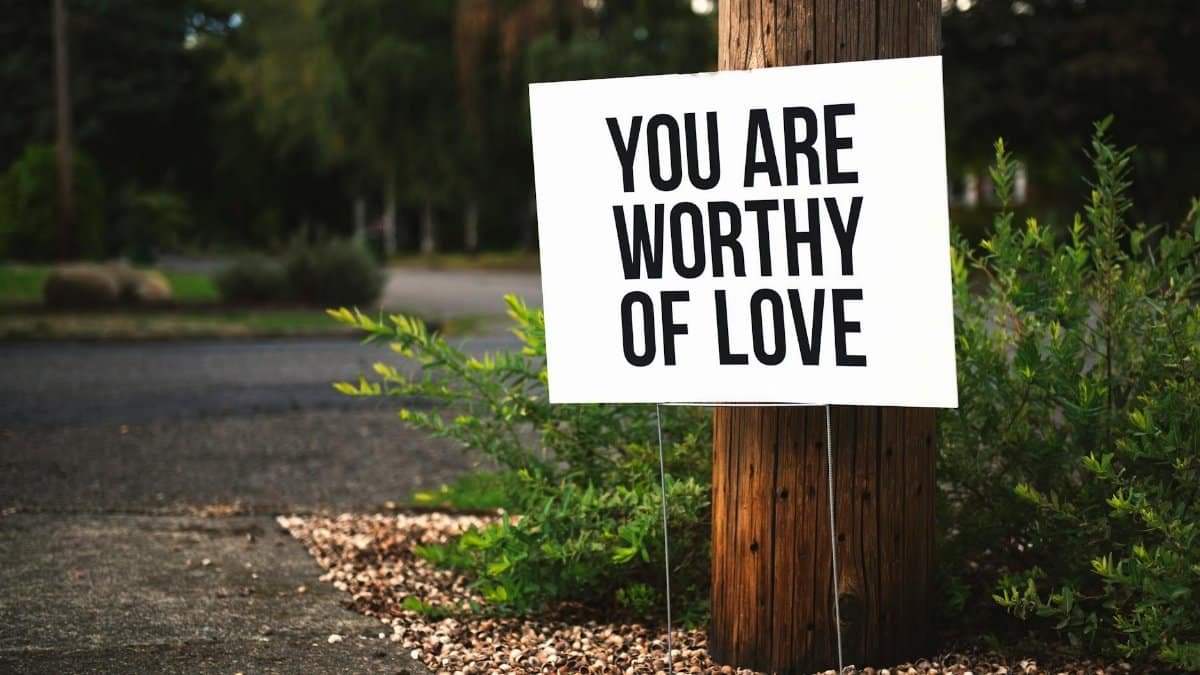A recent poll from the American Psychological Association showed that nearly 70% of adults report feeling stuck in their personal development, often citing self-doubt as the biggest barrier. That’s up from just 45% a decade ago. This surge points to a deeper issue in how we approach growth. Enter growth self-love, a concept blending self-compassion with the drive to evolve. It’s not about forcing change through criticism. Instead, it invites acceptance as the foundation for real progress. In bustling cities like New York or Los Angeles, people are turning to this mindset amid rising burnout rates. Therapists see it in sessions. Coaches weave it into programs. Yet many still struggle, mistaking self-love for indulgence. The truth? It’s the hidden key to unlocking sustainable growth. Without it, efforts often fizzle. With it, transformation feels less like a battle and more like a natural unfolding.
Unpacking the Essence of Growth Self-Love

Growth self-love starts with a simple shift in perspective. It’s the practice of nurturing oneself while pursuing improvement, without the harsh inner critic that so many carry. Imagine a middle-aged professional, let’s call her Sarah, who spent years climbing the corporate ladder only to hit a wall of exhaustion. She pushed harder, berating herself for not being “enough.” Then, through a mindfulness workshop, she discovered this blended approach. It wasn’t about lowering standards. Rather, it meant celebrating small wins and forgiving setbacks. Research backs this up. A study from the University of Texas at Austin explored how self-compassion influences resilience. Participants who practiced it reported higher motivation over time. University of Texas Self-Compassion Research highlights these findings, showing reduced anxiety in those embracing kindness toward themselves.
This essence goes beyond buzzwords. It’s rooted in psychological frameworks like those from Kristin Neff, who pioneered self-compassion studies. Her work reveals that treating oneself with the same care given to a friend can dismantle barriers to growth. For Sarah, this meant journaling affirmations not as fluffy exercises, but as tools to rewire negative thought patterns. The result? She advanced in her career with renewed energy, proving that self-love isn’t a detour from growth. It’s the fuel.
The Roots of Resistance: Why We Push Back

Resistance to growth self-love often stems from deep-seated beliefs. Many grew up hearing that success demands sacrifice and self-criticism. Think of the old adage about no pain, no gain. But what if that pain is self-inflicted and unnecessary? In conversations with therapists, a common theme emerges: clients fear that self-love equals complacency. One anonymous account shared publicly online described it vividly. “I thought accepting my flaws meant giving up on bettering myself,” the person wrote. “But it was the opposite. Once I stopped fighting who I was, I could finally change.”
This pushback has cultural layers too. In the U.S., where individualism reigns, vulnerability feels like weakness. Yet data from Pew Research Center indicates a shift. Their surveys on mental health attitudes show increasing acceptance of self-care practices among middle-aged Americans. Pew Research on Mental Health Attitudes notes that 62% now view therapy positively, up from previous years. Breaking through resistance requires recognizing these roots. It might start with small acts, like pausing during a stressful day to acknowledge effort rather than just outcomes. Over time, this builds a gentler internal dialogue, paving the way for authentic progress.
Everyday Practices to Cultivate It

Building growth self-love doesn’t require grand gestures. Start small, like setting boundaries at work. Consider Mark, a father in his forties juggling a demanding job and family life. He used to work late into the night, ignoring fatigue. Adopting daily practices changed that. He began with morning reflections, listing three things he appreciated about himself. Sounds simple? It is, but consistency matters. Experts from the Mayo Clinic recommend such routines for mental well-being. Their guidelines on stress management emphasize self-kindness as a core strategy. Mayo Clinic Stress Management provides practical tips, linking them to improved health outcomes.
Another practice involves mindful movement. Not intense workouts, but gentle activities like walking in nature, where one can reflect on personal strengths. Mark incorporated this, noticing how it quieted his self-doubt. He shared in a support group how these habits transformed his approach to goals. No longer driven by fear of failure, he pursued them with curiosity. The key is integration. Weave these into routines without overhauling life overnight. Track progress in a journal, noting how self-love enhances motivation. It’s about creating a supportive inner environment where growth can thrive naturally.
The Impact on Relationships and Community

Growth self-love extends beyond the individual. It reshapes how we connect with others. When someone embraces their own worth, they offer more genuine empathy. Take a community group in Chicago, where members gather to discuss personal development. One participant recalled a shift: “Loving myself meant I stopped projecting insecurities onto my partner.” This ripple effect is evident in stronger bonds. Studies from Harvard’s Grant Study, a long-term research on adult development, underscore the role of self-acceptance in healthy relationships. Harvard Grant Study findings suggest that emotional intelligence, fueled by self-compassion, predicts relational success.
In broader communities, this mindset fosters inclusivity. Online forums buzz with stories of people finding solidarity through shared journeys. Anonymously, one user described joining a virtual support network in 2025, where growth self-love discussions helped mend family ties strained by past judgments. It’s not always smooth. Tensions arise when old patterns clash with new self-awareness. Yet, navigating these with kindness strengthens communal ties. Ultimately, as more Americans adopt this approach, it could lead to more compassionate societies, where personal growth benefits the collective.
Navigating Setbacks with Compassion

Setbacks are inevitable in any growth journey. The difference lies in response. Growth self-love teaches responding with compassion, not condemnation. Picture a writer facing repeated rejections. Instead of spiraling into self-loathing, she pauses to affirm her efforts. This isn’t denial; it’s reframing. Psychological research supports this. A meta-analysis from the National Institutes of Health links self-compassion to better coping mechanisms during failure. NIH Study on Self-Compassion details how it reduces depression symptoms post-setback.
Practical steps include debriefing after a stumble. Ask: What did I learn? How can I be kind to myself now? For the writer, this meant treating rejections as data points, not personal indictments. Over months, her resilience grew, leading to eventual publication. It’s a cycle: compassion fuels persistence, which drives growth. In 2025, with economic uncertainties, this skill is crucial. Many report using it to weather job losses or health challenges. By viewing setbacks as part of the human experience, one maintains momentum, turning obstacles into stepping stones.
Long-Term Benefits for Well-Being

The rewards of growth self-love unfold over time. It’s linked to lower stress levels and higher life satisfaction. Middle-aged adults, often sandwiched between career peaks and family demands, find it particularly transformative. A report from the Centers for Disease Control and Prevention highlights how positive self-regard correlates with better physical health. CDC Mental Health Resources offers insights into these connections, noting reduced risks of chronic conditions.
Beyond health, it enhances creativity and productivity. Freed from constant self-judgment, ideas flow more freely. Consider an entrepreneur who, after years of burnout, integrated self-love practices. His business innovated in ways he hadn’t imagined. Stories like this abound, showing sustained energy for long-term goals. In essence, it’s an investment in oneself that pays dividends across life’s domains. As trends evolve in 2025, embracing this could redefine aging gracefully, with more emphasis on inner fulfillment than external achievements.
Challenges in a Fast-Paced World

Our hurried society poses unique hurdles to growth self-love. Social media amplifies comparisons, eroding self-worth. Amid notifications and deadlines, carving out space for self-reflection feels luxurious. Yet, it’s essential. One middle-aged reader shared an experience: “Scrolling through perfect lives made me question my progress. Learning to log off and tune in helped.” This sentiment echoes in wellness circles.
Addressing these challenges requires intentionality. Set digital boundaries or seek accountability partners. Research from Stanford University on technology’s impact supports limiting screen time for mental health. Stanford Digital Health Research explores how balanced tech use aids self-compassion. In practice, it means prioritizing rest amid chaos. While not easy, overcoming these barriers leads to a more grounded existence, where growth aligns with genuine self-acceptance.
Embracing the Journey Ahead

As we look forward, growth self-love stands as a beacon for personal evolution. It’s not a quick fix but a lifelong companion. In workshops across the U.S., facilitators note rising interest, especially post-pandemic. Participants leave with tools to blend ambition with kindness. The hidden reason many struggle with growth? Forgetting that self-love is the soil from which it sprouts. By nurturing it, we unlock potential we didn’t know existed. It’s a quiet revolution, one heart at a time.
